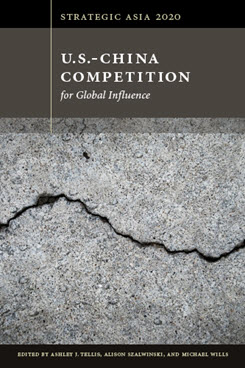South Korea's Strategic Nondecision and Sino-U.S. Competition
This chapter analyzes South Korea’s responses to the U.S.-China competition for global influence and discusses the drivers of South Korean foreign policy that intersect with U.S. and Chinese interests and strategic goals.
EXECUTIVE SUMMARY
MAIN ARGUMENT
As the U.S. and China present competing visions of international order and strive for greater global influence, South Korea finds itself in a difficult position and is worried that its coping reflex of strategic nondecision may no longer be sustainable. At least four factors—North Korea, the domestic political divide between progressives and conservatives, economic interests, and Korean identity and desire for autonomy—explain why South Korea has so far adopted a policy of remaining indecisive in its relations with the U.S. and China. It has done so in large part to avoid the potentially unacceptable costs associated with choosing between the two rivals. As U.S.-China strategic competition intensifies in the future, South Korea will need to focus on building a solid geopolitical alliance with the U.S. that emphasizes political, rather than military, relations. At the same time, it must take care to ensure that its alliance with the U.S. does not contribute to negative spirals of Sino-U.S. tension.
POLICY IMPLICATIONS
- South Korean society as a whole should develop a vision for its place in the newly emerging international order and carefully examine its strategic priorities in the face of U.S.-China competition.
- Washington should not force a choice but should instead help empower Seoul politically to deal with Beijing’s increasing influence on the Korean Peninsula.
- South Korea and the U.S. should emphasize the alliance’s political, as opposed to military, value in shaping a new international order. At the same time, they must continually communicate what this alliance is and is not with China.
Ji-Young Lee is the Korea Policy Chair at the RAND Corporation and an Associate Professor of International Relations at American University.
Strategic Asia
The Strategic Asia annual edited volume incorporates assessments of economic, political, and military trends and focuses on the strategies that drive policy in the region. Learn more about Strategic Asia.




